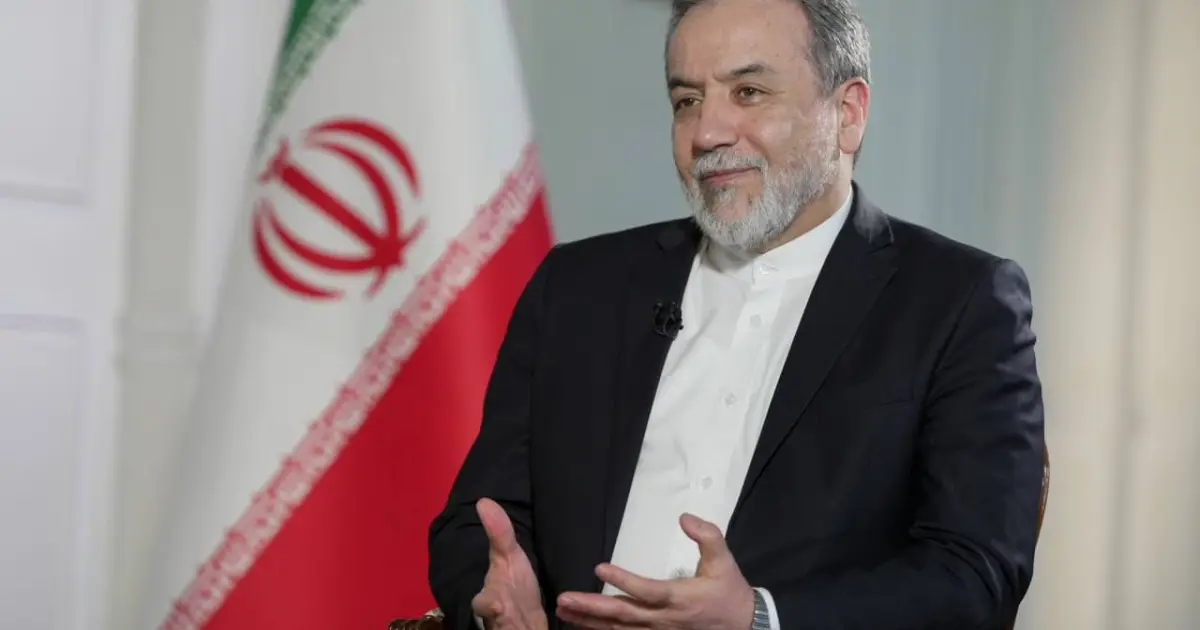Iran ‘not in hurry’ to resume nuclear talks with US | Israel-Iran conflict News
Tehran, Iran – Iran is “not in a hurry” to resume talks with the United States over its nuclear programme, Tehran’s foreign minister has told Al Jazeera.
Iran remains prepared to engage in indirect negotiations with Washington if the US chooses to talk “from an equal position based on mutual interest”, Foreign Minister Abbas Araghchi told Al Jazeera Arabic in an interview at his office in Tehran that was broadcast on Sunday.
Recommended Stories
list of 3 itemsend of list
The official also asserted that a critical “shared understanding” regarding Israel is developing across the region.
Tehran’s top diplomat said conditions set by the US for talks to resume – which reportedly include an emphasis on direct negotiations, zero uranium enrichment, and limits on Iran’s missile stocks and its support for regional allies – are “illogical and unfair”.
That makes talks untenable, he suggested.
“It appears they are not in a hurry,” he remarked. “We are not in a hurry, either.”
Araghchi’s insistence comes despite the pressure from reimposed United Nations sanctions and other challenges facing the Iranian establishment.
Rather, the foreign minister said he believes regional dynamics are turning against Israel, the US’s closest ally in the Middle East.
“I sometimes tell my friends that Mr Netanyahu is a war criminal who has committed every atrocity, but did something positive in proving to the entire region that Israel is the main enemy, not Iran, and not any other country,” Araghchi said in reference to the Israeli prime minister.
The comments came two days after Oman’s chief diplomat, for the first time, publicly joined the chorus of disapproval aimed at Netanyahu and his hardline government.
“We have long known that Israel, not Iran, is the primary source of insecurity in the region,” Foreign Minister Badr bin Hamad al-Busaidi told the audience at the IISS Manama Dialogue 2025 regional forum.
He said over the years, the Gulf Cooperation Council (GCC) has “at best sat back and permitted the isolation of Iran”, a stance that he believes “needs to change”.
In the past 48 hours, the heinous lie that the unlawful Israeli and U.S. bombing of Iran was motivated by an imminent nuclear threat has been thoroughly debunked by
– The International Atomic Energy Agency Chief, who has explicitly stated that Iran “is not and was not”… pic.twitter.com/C2uBzBLOHD
— Seyed Abbas Araghchi (@araghchi) November 2, 2025
Oman has for years acted as a mediator between Iran and the US in nuclear, financial, prisoner exchange and other regional issues.
Tehran and Washington were slated to sit down for a sixth round of talks in mid-June, when Israel attacked Iran’s nuclear facilities. That launched a 12-day war that killed more than 1,000 people in Iran and inflicted billions of dollars in infrastructure damage.
After media reports last week said the administration of US President Donald Trump had sent a new message to Tehran via Oman, Iran’s government spokeswoman Fatemeh Mohajerani confirmed that messages had been received.
But she did not elaborate on the content or Iran’s potential response. The White House has not publicly confirmed sending the missive.
During his interview, Araghchi said “almost all” of the about 400kg (880lb) of 60-percent enriched uranium possessed by Iran is “buried under the rubble” of nuclear facilities bombed by the US and Israel.
“We have no intention of removing them from under the rubble until conditions are ready. We have no information on how much of the 400kg is untouched and how much is destroyed, and we will have no information until we dig them out,” he said.
The Iranian foreign minister pointed out that China and Russia have formally announced they do not recognise the UN sanctions recently reimposed against Iran by the European signatories to its 2015 nuclear deal with world powers.
France, the United Kingdom and Germany have signalled they want to restart talks with Tehran. However, no substantial progress has been made.
In the meantime, they have imposed sanctions and restrictions, both in relation to Iran’s alleged drone exports to Russia and its nuclear programme.
The three European powers in September announced they were suspending their bilateral air services agreements with Iran, affecting Iranian carriers like Iran Air.
Some of the flights appear to be gradually coming back, though, with Iranian state television airing footage of an Austrian Airlines flight landing in Tehran’s Imam Khomeini International Airport on Sunday night.
Germany’s Lufthansa is also scheduled to resume flights to Tehran, but the precise restart date has not been publicly announced.
